Consortium Partners
The REDI-NET program partners are academic institutions, governmental agencies, field stations, and NGOs that serve integral roles in program implementation and success. Together, these partners are creating data-driven, actionable entomological intelligence outcomes through a system of systems that will address the taxonomic impediments and tackle tomorrow’s vector-borne disease threats using Next-Generation Sequencing (NGS).
To learn more about a partner, click on their logo.
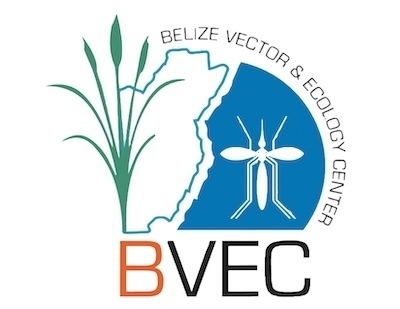
Belize Vector & Ecology Center (BVEC) is a field station led by the University of Notre Dame Eck Institute for Global Health and Department of Biological Sciences faculty, John P. Grieco and Nicole L. Achee, that focuses on partnership with Belize Ministry of Health officials, domestic and international students, and researchers from around the world, to ensure knowledge transfer and capacity building within local, regional and international public health arenas.
BVEC is managed by Belizean staff, and since its establishment, the BVEC has collaborated with domestic entities like the Ministry of Health and Wellness, the Belize Agricultural Health Authority (BAHA), the University of Belize (UB), and international students and researchers to promote scientific development, education, and training in public health. Bordered on the left by the New River and on the right by luscious greenery, BVEC has extensively researched vector behavior and ecology, habitat management, vector abundance and distribution, and the efficacy of conventional insecticides, which has been instrumental in strategizing vector control methods in areas vulnerable to arthropod-borne diseases.
Several communities in the northern lowlands depend on livestock farming for their livelihood in Belize. The forests in the mountainous southwest, like the Mountain Pine Ridge and the Cockscomb Basin Forest Reserve, are home to diverse wild animals, like the black jaguar, crocodiles, and migrating black pelicans, who have stabilized their relationship with its ecology. The intimacy between the animals, the environment, and humans increases the risk of zoonotic transmission. To address this concern, BVEC collects samples from tropical forests, wetlands, and agricultural lands in protected and commercial areas nationwide.
Hosting a REDI-NET Silver Lab, BVEC will conduct field collections and Next-Generation Sequencing (NGS) testing of samples and provide rigorous feedback for continued optimization of Standard Operating Procedures (SOPs). BVEC will leverage opportunistic samples from domestic animals or wildlife and advise on the selection and ecological characterization of collection sites.
- BVEC Partners: Alvaro Cruz, Mariely Campos, Arlo Cansino, Marie C. Pott, Uziel Romero
- BVEC Past Partners: Joanna Gomez, Marla Magaña Cansino, Alexia Thompson, Jailene Castillo

The Center for Research Computing (CRC) housed at the University of Notre Dame provides the data management infrastructure for the REDI-NET Program. Activities for the CRC include the development of data collection forms, collaborating with in-country data entry personnel, establishing data collection methods, and managing and cleaning computational infrastructure.
- CRC Partners: Jarek Nabrzyski, Kinsey Poland, Caleb Reinking, Bradley Sandberg, Samuel Njoroge, Robert Wieck

The EIGH brings together multidisciplinary teams of Notre Dame faculty, staff, and students who partner with domestic and international collaborative networks to build strong and lasting partnerships to affect change at a global scale. EIGH research priorities include 1) infectious diseases, 2) non-communicable diseases, 3) maternal, newborn, and child health, 4) population and family health, and 5) global health security.
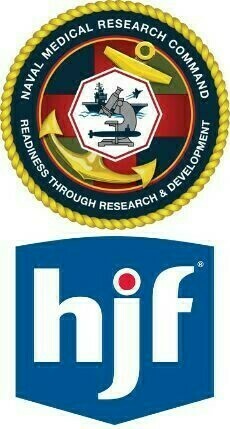
The Naval Medical Research Command (NMRC), hosting a REDI-NET Gold Lab, conducts health and medical research, development, testing, evaluation, and surveillance to enhance deployment readiness of DoD personnel worldwide. NMRC will use various molecular biological techniques and next-generation sequencing to molecularly barcode various vectors and the pathogens therein to identify novel pathogens or confirm the existence of known pathogens in different geographical areas. NMRC will also be responsible for creating and beta-testing optimized SOPs and coordinating with various field sites for sample collection, data upload, analysis, and interpretation. Through a sub-award to the University of Notre Dame, the Henry M. Jackson Foundation for the Advancement of Military Medicine (HJF) manages activities conducted by NMRC/NECE in Maryland/Florida.
- NMRC Partners: Le Jiang (PI), Tatyana Belinskaya, Hsiao-Mei Liao, Zhiwen Zhang, Sarra El Hamzaoui
- NMRC Past Partners: Erica Cimo-Dean
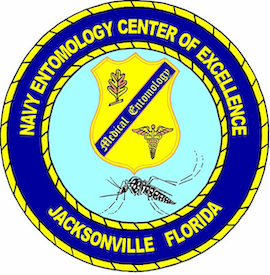
Established in 1947, the Navy Entomology Center of Excellence (NECE), located at Naval Air Station, Jacksonville, Florida, is a field activity of the Navy and Marine Corps Public Health Center with long-standing established research collaborations with NMRC. The center hosts the largest concentration of military entomologists within the Department of Defense. It provides entomological and similar preventive medicine assistance to all U.S. military branches through operational support, global health engagement, readiness and training, testing and evaluation, and research and development programs.
Located within or in proximity to no fewer than four climatic zones, there is significant diversity in the flora and fauna between many established sites, from the humid subtropical loblolly pine forests and marshlands of North Florida to the mangroves and extensive wetlands of the humid tropical south. Additionally, two major water bodies, the Gulf of Mexico and the Atlantic Ocean, each with significantly different climatic effects, driving average temperature variations of up to five degrees and impacting the local weather and atmospheric conditions differently on both sides of the peninsula.
With the vast majority of waterways in the state consisting of salt or brackish water, Florida wildlife relies on permanent and semi-permanent freshwater bodies consisting of ponds, lakes, streams, and bogs supplied by a somewhat consistent wet season that runs from May to October, especially throughout central and South Florida. White-tailed deer are common throughout the state, similar to the Northeastern United States, and provide an excellent host animal for many tick species. However, unique to Florida’s warmer and wetter ecology is the general abundance of reptiles such as lizards, alligators, tortoises, and turtles, which also serve as host animals along with the deer and rodent populations.
The REDI-NET Silver Team of the NECE selects many of its sampling sites based on varying ecologies and geographical proximity to Department of Defense installations and nearby locations to continue NECE’s goal of enhanced force readiness through its surveillance efforts. Along with its field component, the REDI-NET Silver Team hosts a robust and expanding next-generation sequencing laboratory at NECE within its Research and Development Department, producing optimal field-to-analysis capabilities.
Hosting a REDI-NET Silver Lab, NECE will conduct field collections and NGS testing of samples and provide rigorous feedback for continued optimization of SOPs. NECE will leverage opportunistic samples from domestic animals or wildlife and advise on the selection and ecological characterization of collection sites.
- NECE Partners: CDR Theron Hamilton, Jason Blanton, Jessica Celano, Andrew Li, Sabrina Scime, Jessy Motes
- NECE Past Partners: Jason Fajardo, Lauren Maestas, LT Mohamed Sallam, Christy Waits, Melissa Vizza, LT Nicholas Johnston, LTJG Edward Traczyk
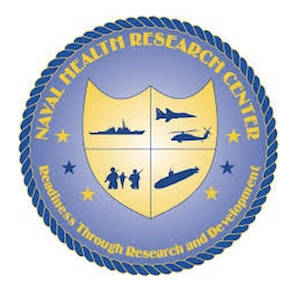
The Naval Health Research Center (NHRC) provides critical support to the United States Department of Defense (DoD) by conducting research, development, testing, and evaluation to inform policy and optimize the operational readiness and health of U.S. military personnel across the globe. As the DoD’s designated Deployment Health Research Center, the NHRC conducts a wide range of research activities with core research areas in Operational Readiness and Health, Military Population Health, and Operational Infectious Diseases.
NHRC came on board the REDI-NET as a critical partner of the Naval Medical Research Command (NMRC), supporting U.S. military readiness and health with research and development through biosurveillance and clinical studies. This partnership formalized the first Bronze-tier laboratories under Phase III of the REDI-NET Program as active surveillance expands across new geographical areas and varied ecologies. In addition, the partnership with NHRC will be instrumental in developing a model for establishing future Bronze-tier laboratories and effectively expanding REDI-NET surveillance across the globe.
NHRC Partners: LCDR Daniel Crouch, LCDR Michelle Lane, Dr. Mathew Esona, Michelle Ricketts, Anne Fraser, Brenden Gregorio, Jasmine Jordan Ham, Collins Nguyen, and Alyssa Ilano
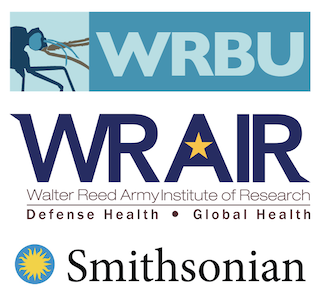
The Walter Reed Biosystematics Unit (WRBU), hosting a REDI-NET Gold Lab, is a unique partnership between the Walter Reed Army Institute of Research (WRAIR) and the Smithsonian Institution - National Museum of Natural History (SI), which is a world-renowned center of taxonomic excellence, undertaking cutting-edge research to provide actionable entomological intelligence tools and products that best assess global vector-borne disease risk. WRBU will provide verified DNA tick sequences for expected taxa in the USA, Kenya, and Belize to strengthen the stand-alone MinION reference libraries, collaborate on the development of optimized SOPs, perform reach-back testing, and is responsible for guiding the activities at the Silver Lab in Kenya.
- WRBU Partners: Yvonne Linton (PI), Brian Bourke, Laura Caicedo, Koray Ergunay, Alex Potter
- SI Partners: James Hassell
- Past WRBU/SI Partners: Suppaluck Nelson, Dawn Zimmerman

The Smithsonian Institution (SI) maintains a strong collaboration with the Mpala Research Centre (MRC), located on over 48,000 acres at the core of the Ewaso ecosystem, a large, geographically diverse region of central Kenya, defined by the Ewaso Ng’iro River and its tributaries. The Mpala Research Center is administered as a Trust by a partnership among Trustee agencies based in the USA (Princeton University and the Smithsonian Institution) and Kenya (the National Museums of Kenya and the Kenya Wildlife Service). The latter are the two government agencies mandated to conserve biodiversity in Kenya. The Mpala Research Centre is also a registered Non-Governmental Organization in Kenya and receives financial support and governance from the Mpala Wildlife Foundation, established by George Small '43.
MRC was established in November 1994 at the core of the Ewaso Ecosystem in Laikipia County in central Kenya, defined by the catchments of two perennial rivers, the Ewaso Ny’iro, and Ewaso Narok, and by the protracted migrations of over 6000 elephants. MRC provides researchers from Kenya and abroad with a manipulable wooded-savanna landscape to conduct experiments that explore basic science, develop science-based solutions that guide conservation actions and facilitate human-wildlife co-existence while ensuring that sustainable livelihoods and economic advancement are synonymous with wildlife conservation. Mpala’s research role is core for Laikipia County, a vast wooded-savanna landscape supporting prodigious wildlife populations outside formally protected national parks/reserves whose abundance rivals the world-renowned Maasai Mara-Serengeti ecosystem.
The distribution and movement of wildlife, livestock, and humans in Laikipia County are influenced by water availability. This reliance on shared and limited water resources creates an interface for diseases of public health importance to be transmitted from wildlife to people and diseases of veterinary importance to be transmitted from wildlife to livestock, and vice versa. The REDI-NET Kenya Silver team selected permanent waterholes from across Laikipia’s landscape, from which vertebrate and invertebrate samples are collected monthly. Hosting a REDI-NET Silver Lab, Mpala will conduct field collections and NGS testing of samples and provide rigorous feedback for continued optimization of SOPs. Additionally, Mpala will leverage opportunistic samples from domestic animals or wildlife and advise on the selection and ecological characterization of collection sites.
- Mpala Research Centre Partners: Maureen Kamau, Rashid Lebunge, Janerose Mutura, Griphin Ochieng
- Mpala Research Centre Past Partner: Robert Ang'ila
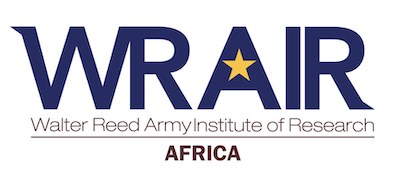
WRAIR-Africa is the Walter Reed Army Institute of Research's (WRAIR) forward platform in Africa for infectious disease surveillance, product development, and global health engagement. WRAIR-Africa enables WRAIR to deliver military health solutions with global impact.
WRAIR-Africa’s robust infectious disease surveillance network informs force health protection to enable operational forces in the USAFRICOM AOR. WRAIR-Africa’s international research and clinical trials platforms accelerate the development and delivery of infectious disease countermeasures and knowledge products. By executing the President’s Emergency Plan for AIDS Relief (PEPFAR) in Kenya, Nigeria, Uganda, and Tanzania, WRAIR-Africa cultivates key strategic partnerships and fortifies the research, testing, and surveillance portfolios.
- WRAIR-Africa Partners: John Waitumbi
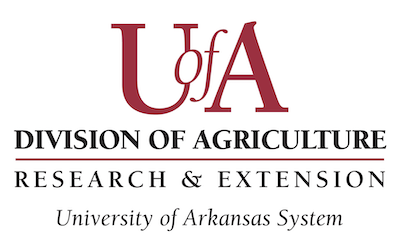
Located in Fayetteville, Arkansas, the University of Arkansas System Division of Agriculture (UADA) brings expertise in veterinary entomology and vector-borne diseases of animals to the REDI-NET project. UADA will develop SOPs for collecting vertebrate DNA (vDNA) from epidemiologically relevant domestic and wildlife species, including cattle, deer, and poultry. These species frequently interact with humans and can serve as reservoirs for zoonotic pathogens, antimicrobial-resistant bacteria, and hosts for human-pathogen vectors. Contact with animals is a known risk factor for many vector-borne and zoonotic diseases.
In Arkansas, one of the most common tick species, the lone star tick, frequently feeds on cattle and humans. Research from UADA has shown that lone star ticks collected from cattle are frequently infected with human pathogens. Arkansas is an ecologically and geologically diverse region with abundant livestock and wildlife, which frequently interact. UADA will leverage state-wide research and extension centers, as well as regional partners, to test the validity of multiple vertebrate-associated sample types for emerging pathogen surveillance.
- UADA Partners: Emily McDermott, Cameron Osborne, Anna Grace Deakins
- UADA Past Partners: Cierra Briggs
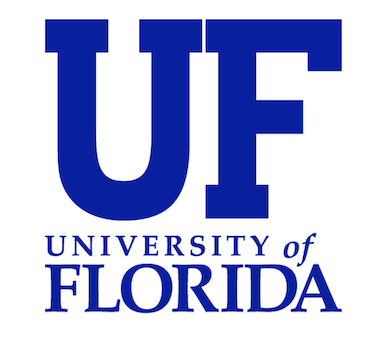
University of Florida (UF) will provide expertise in vector-borne disease surveillance, control, and pathogen discovery. Under a sub-award to WRBU, UF will continue to field test the REDI-NET collection SOPs for all sample types to ensure optimized field collection and storage protocols.
Dr. Mike von Fricken at UF has designed tick drags that have been implemented in Phase I and II of the REDI-NET program, and to complement SOP optimization, he will also assist in designing CO2 traps for capturing adult ticks more effectively in various environments. Throughout the REDI-NET program, von Fricken continues to provide technical expertise for the continuous training and guidance of the Kenya Team as they accomplish REDI-NET activities in-country as well as assisting with the expansion of the team operating out of the Navy Entomology Center of Excellence (NECE) in Jacksonville, Florida.
- UF Partner: Michael von Fricken
- UF Graduate Students: Abby Lilak, Nora Cleary

Vectech brings its computer vision system to the REDI-NET Program, which currently offers high-accuracy identification of wild-caught mosquito species. This system will be modified to identify ticks using dorsal and ventral images with validation through molecular identification with DNA barcoding.
-
Vectech Partners: Tristan Ford, Adam Goodwin